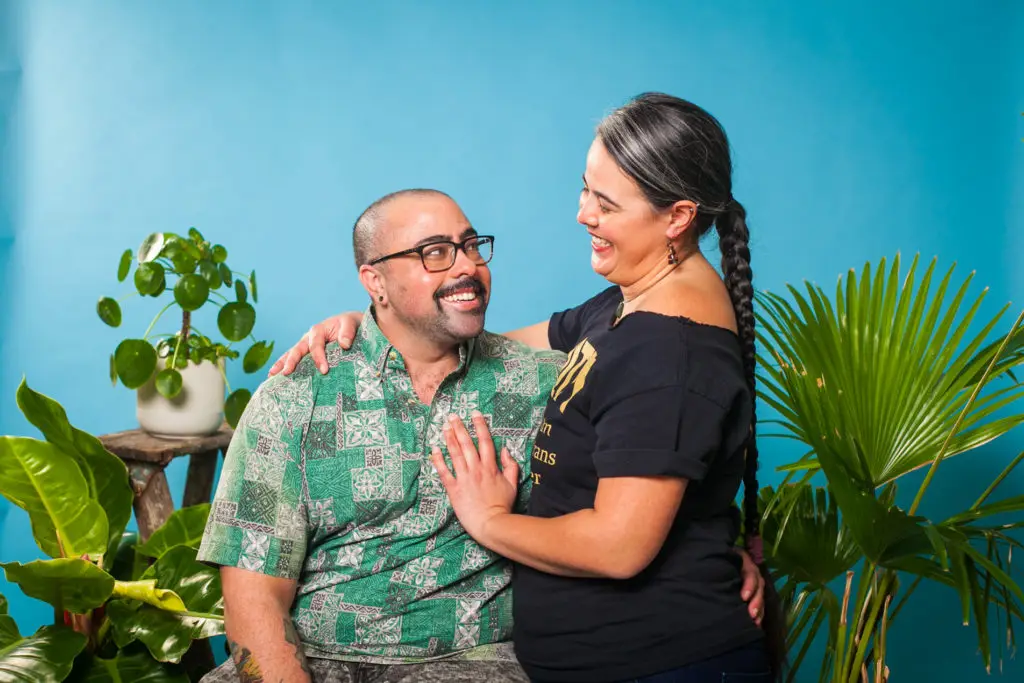Hispanic Heritage Month (September 15 to October 15) celebrates the cultures, histories, and contributions of Latin American communities in the United States. For trans Hispanics, everyday life can mean navigating not only anti-trans laws but also anti-immigrant bias — from clinics to workplaces to public spaces. Even though not all trans Hispanics are immigrants, anti-immigrant sentiment has a negative impact on all Hispanic communities. Racial profiling, language barriers, and the fear of being perceived as “foreign” ripple across everyday life. This month, as we celebrate resilience and contributions, we must remember how trans Hispanics are navigating these layered challenges.
Who Are Trans Hispanics in the U.S.?
According to the Williams Institute at UCLA School of Law, about 2.8 million people ages 13 and older in the U.S. identify as transgender — roughly 1% of the population (Williams Institute, 2025). Within that population, Hispanic people make up a significant share.
Among adults (18+), 1.0% of Hispanic adults identify as transgender — roughly 469,000 people. By comparison, 0.8% of White adults, 0.6% of Black adults, and 0.8% of Asian American and Pacific Islander (AAPI) adults identify as transgender.
Prior research shows that adults who identify as transgender may be slightly more likely to be Hispanic compared to the general U.S. population. For trans Hispanics in 2025, living openly is rarely straightforward. Anti-trans laws and rising anti-immigrant sentiment intersect in ways that create barriers and heighten risks.
Anti-trans laws continue to sweep across the U.S., with hundreds of bills targeting trans youth and adults. Some restrict access to gender-affirming care, others block participation in sports, and some even attempt to erase trans people from public spaces entirely. Beyond the laws themselves, the national conversation fosters stigma, fear, and an environment where discrimination feels normalized.
Anti-immigrant hostility amplifies these challenges. Policies, rhetoric, and enforcement practices impact not only immigrants but also U.S.-born Hispanics. Fear of profiling, surveillance, or being treated as “foreign” can affect decisions about going to school, accessing public services, or visiting a clinic. For immigrant trans Hispanics, these pressures are even greater. Detention systems, ID requirements, and language barriers compound daily risks.
Everyday Barriers to Care and Safety
The political climate shapes practical realities. Trans Hispanics face unique challenges in healthcare, safety, and economic security.
Telehealth has improved access to gender-affirming care for many, but barriers remain:
- Insurance and billing: Fear of documentation checks or data sharing can prevent people from using insurance.
- Identification issues: Some states’ strict ID policies complicate updating names and gender markers, creating administrative hurdles for prescriptions or hospital visits.
- Pharmacy and provider access: Local providers may lack experience with gender-affirming care, leading to delays, mistakes, or stigma.
- Language and cultural competency: Clinics without Spanish-speaking staff or understanding of Hispanic culture can feel unwelcoming, alienating, and even unsafe.
Policy decisions create ripple effects in everyday life: lost jobs, housing insecurity, and exposure to violence are all real concerns. Trans Hispanics in precarious work — including sex work — face compounded legal and immigration risks. Undocumented or mixed-status families may avoid seeking help for domestic violence, mental health support, or medical care because fear of enforcement is ever-present.
Even U.S.-born trans Hispanics experience similar pressures: anti-immigrant sentiment affects hiring practices, public interactions, and access to culturally competent support, shaping daily life in subtle but meaningful ways. Despite these challenges, trans Hispanics have long histories of creating strong support systems. Community, mutual aid, and cultural networks provide vital safety nets when formal systems fail.
- Family and chosen family: Many multigenerational households support trans relatives with housing, childcare, or emotional support.
- Community organizations: Bilingual community centers and promotores/as connect trans Hispanics with resources, healthcare navigation, and legal assistance.
- Cultural resilience: Pride, cultural celebrations, and faith-based support that affirm gender identity help people maintain a sense of belonging and dignity.
Health care, safety, and a sense of belonging are all connected to culture, family, and the world around us. Hispanic Heritage Month is a time to celebrate the resilience and contributions of Hispanic communities, but it’s also a chance to recognize the everyday challenges trans Hispanics face. From navigating clinics to finding supportive spaces, these experiences are shaped by laws, bias, and sometimes fear. Community, family, and cultural traditions keep people supported and grounded. This month, let’s honor that strength and think about how we can all help create spaces where trans Hispanics can feel safe, seen, and truly at home.



